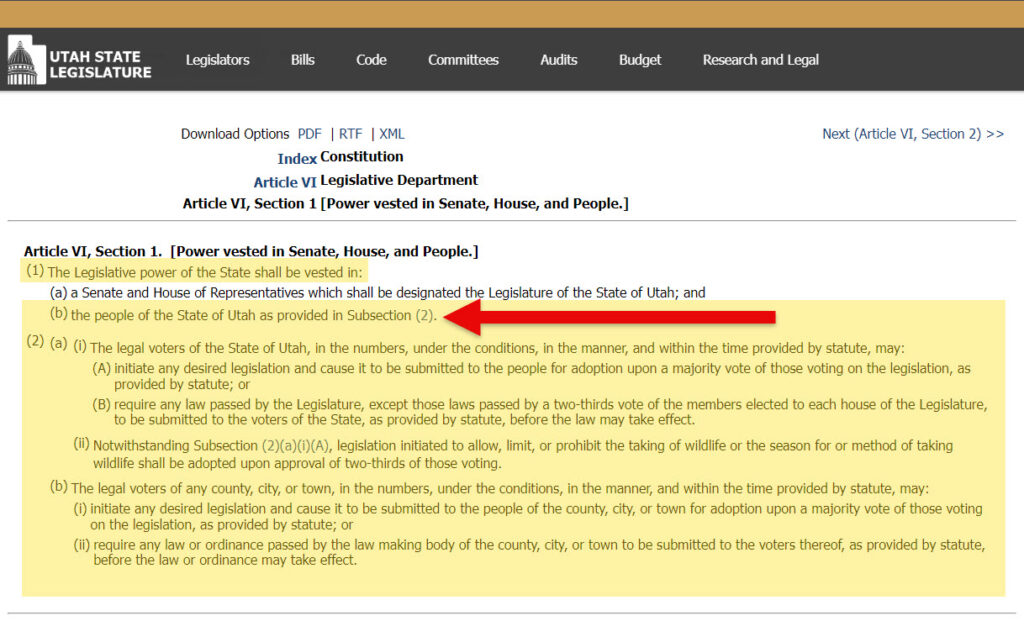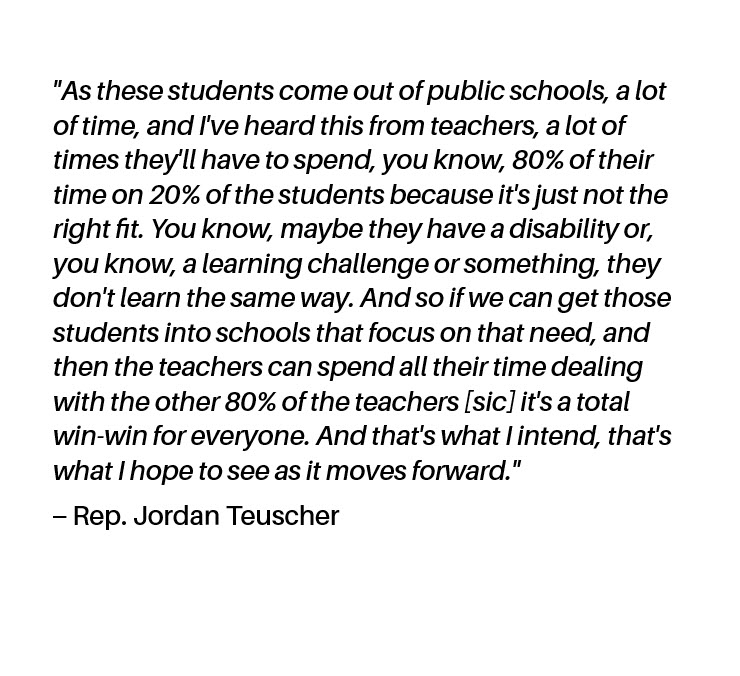It looks like there may be a viable candidate to run against Teuscher. On December 30, Scott Stephenson announced his candidacy for Utah House District 44. Scott is a Republican, and the current Executive Director of the Utah Fraternal Order of Police. His campaign site can be found at https://scottstephenson4utah.com/.
It will be interesting to see how this develops (update: Stephenson filed as a candidate on January 6). The Utah GOP typically want to work through the caucus process to nominate their candidate. I suspect that Stephenson will be on the ballot using the signature-gathering process due to the conflict of ultra-conservative caucus delegates who are likely not going to support anyone other than the incumbent. What’s principally at issue for Stephenson is labor support and Teuscher’s opposition to it. He really needs to be on the Republican primary ballot in 2026, and to do that it’s necessary to bypass the rife-stridden caucus system.
My real question here is whether sheer ignorance from voters in HD44 keeps Teuscher in office this time. They have a viable Republican challenger in front of them. What resonates about Teuscher that his constituency would keep him in place? There isn’t much.

Utah House District 44 is a primarily residential district that carefully carves out a portion of the Daybreak community in South Jordan, and combines that with the north and west of the city, and the southwestern edge of West Jordan city. Jordan Teuscher is the current Utah state representative of HD44, and has been successfully elected by the constituency there in the past 3 election cycles.
You can find the full Demographic Profile of House District 44 on the Utah legislative site at https://le.utah.gov/documents/demographic/profiles/2022/House_Dist44.pdf.
- House District 44 is primarily white, older, and conservative.
- There is strong interest in undeveloped real estate, managed growth for the city, preservation of “neighborhood character”, opposition to high density housing or adopting zones for additional family units
- Limited taxation.
- There is only a single fire station, but no other municipal buildings.
- There are no federal facilities.
- There are eight public schools (elementary and middle schools) and one public charter school. Jordan Education Foundation, part of the Jordan School District, recently moved its operations within the district boundaries after relocating to the old Walmart shopping center across from Elk Ridge Middle School.
- Three red-line Trax stations sit within the district boundaries (Ballpark, South Jordan Pkwy and 4800 W Old Bingham Hwy), but there are no significant UTA public transit routes, except those that border the north boundary of the district along 9000 South. HD44 is essentially a public transit dead zone.
Now take a look at what Stephenson says are his issues: https://scottstephenson4utah.com/issues
By contrast, Teuscher’s legislative bills have no direct relationship to the top issues of his constituency:
- Bills that consolidate legislative authority and dismantle constitutional rights of voters
- Anti-labor legislation to weaken right-to-organize that particularly impact public service and education employees
- De-funding of Public Education through voucher programs
- Revisions to alter local government structure and administration
- Development of block-chain legal entities and favorable cryptocurrency legislation
- Technical/ process-oriented reforms of statutory language, court procedure, and sentencing mechanics for court procedures
Broader Influences
- Teuscher is co-chair of the Point of the Mountain State Land Authority (POMSLA). South Jordan Mayor Dawn Ramsey is a board member.
- Teuscher is the principal of the Conservative Millennials PAC. Note his working group includes House Representatives Candice Pierucci, Anthony Loubet, and former House Representative Kera Birkeland.
- Teuscher is propped up by Real Estate (see his disclosures page), and you can bet that will be a point of contention between him and Stephenson. Valuation, Zoning, Land Use, and “Neighborhood Character” are going to come into play with South Jordan residents
- Teuscher plays ball with the Miller family (pun intended) with financial contributions from The Larry H. Miller Company and through close work developing the new Salt Lake Bees stadium in Daybreak (and now the principal commercial development within House District 44)
- Teuscher is an incumbent, and that means his lines of support will run deeper than normal. He has tangible supports from US Rep. Burgess Owens, Utah Senator Lincoln Fillmore, Utah Senate President Stuart Adams, Utah House Speaker Mike Schultz, former Utah House Speaker Brad Wilson, and Utah AG Derek Brown, among others.
- Teuscher has supports within the Utah Tech Leads (UTL) / Silicon Slopes policy groups – note that the groups are defunct but the people who ran them are active – based on his advocacy and advancement of DAOs, block-chain and crypto policies in Utah (see the Blockchain and Digital Innovation Task Force)
- Some of the biggest in-kind donations for Teuscher in 2024 came from the Utah Taxpayers Association, and the Utah Republican Party.
Don’t Forget His Endorsers
Late in the 2024 campaign the Utah Republican Party sent out this flyer with named endorsers who voiced support of Teuscher. This is the level of embeddedness that Stephenson will need to uproot during his 2026 campaign to replace Teuscher.
- John Curtis, US House of Representatives
- Burgess Owens, US House of Representatives
- Mike Kennedy, Utah Senate (now US House of Representatives)
- Jim Moss, Chair, Utah Board of Education
- Patrick Harris, South Jordan City Council
- Kathie Johnson, South Jordan City Council
- Don Shelton, South Jordan City Council
- Tamara Zander, South Jordan City Council
- Jason McGuire, South Jordan City Council

References
2025-12-30 Article: Scott Stephenson announces candidacy for Utah House District 44 (https://utahpolicy.com/)
2025-01-15 Article: Vision for the future of South Jordan unveiled by leaders (fox13news.com)
2023-02-07 Blog Post: Making a City Great (sjc.utah.gov)



